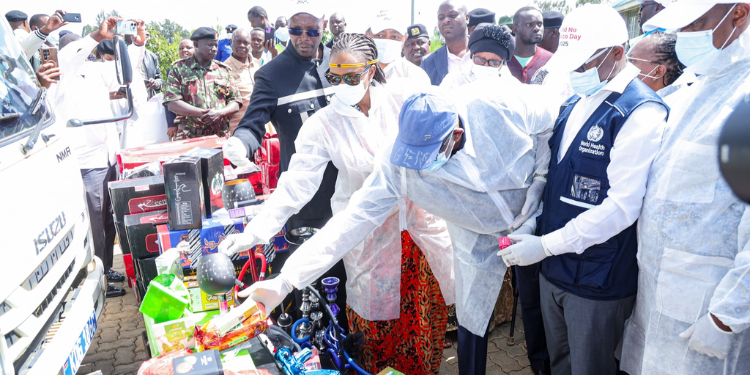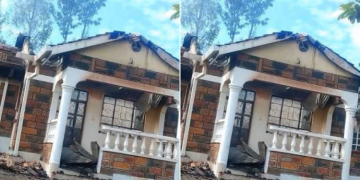More than 1,000 hospitals across Kenya risk closure for failing to comply with operating license requirements.
Health Cabinet Secretary Aden Duale announced on July 16, marking an aggressive regulatory crackdown in the country’s healthcare sector.
“I have already closed over a thousand health facilities, and I will close another one thousand next month,” said Duale during a press briefing. “If your facility is classified as level two, you will stay at level two. You will not upgrade yourself without our approval.”
The closures are part of a broader initiative under the Social Health Authority (SHA) and Kenya’s Digital Health Transformation Superhighway, aimed at reforming the healthcare sector by improving service delivery, enforcing standards, and digitizing medical infrastructure.
One of the headline reforms includes the introduction of a “bed capacity access rule,” intended to prevent overcrowding.
Also Read: Deaths Reported as Mysterious Disease Hits Mombasa
“We will not allow a Kenyan to sleep on a hospital floor again,” Duale said.
New Rules for Medicine Dispensing
Further regulations, the Ministry of Health is rolling out medicine verification codes across the country.
Only licensed pharmacists will be permitted to dispense medication, and only drugs approved by the Pharmacy and Poisons Board will be distributed to the public.
“If you’re not a pharmacist, you will not dispense drugs,” Duale warned. “This is about protecting the health and safety of Kenyans.”
Duale reiterated that primary healthcare services at level two to four facilities including dispensaries and health centres are now free of charge for those registered with the SHA.
“You walk in, you see a medic, you go to the lab, you go to the pharmacy, and you go home. As long as you are registered, the entire process is covered,” said Duale.
To support this digital transition, 1,000 tablets have been distributed across Kisumu health facilities, part of a national effort to strengthen the referral system and streamline patient records.
Dr. Ouma Oluga, Principal Secretary for Medical Services, noted that the ministry, in partnership with county governments, has addressed internship placements, arrears for doctors, and support for nurses and clinical officers.
Also Read: Exclusive: List of Kenyan Hospitals That Will Offer Injectable HIV Vaccine for Free
“We want our health workforce to have only one mindset,” Oluga said, pointing to a unified vision for healthcare delivery.
No Unusual Illnesses in Mombasa
Concerns about possible outbreaks in Migadini were downplayed by Director General for Health, Dr. Patrick Amoth, who stated that no unusual symptoms have been detected despite recent reports of unexplained deaths.
“Our team is on the ground. No one is exhibiting any unusual symptoms,” Amoth assured.
This comes a day after the sudden and unexplained deaths of four people in Migadini, Matangini Village.
According to a statement released by the Mombasa County Department of Health on July 15, the victims, three men and one woman died between July 9 and July 14 under what authorities are calling “unclear circumstances.”
The deceased include a 91-year-old woman who passed away at home on July 9, and three men aged 55, 57, and 69 whose bodies were found in various stages of decomposition on July 14.
Follow our WhatsApp Channel and X Account for real-time news updates.













































































